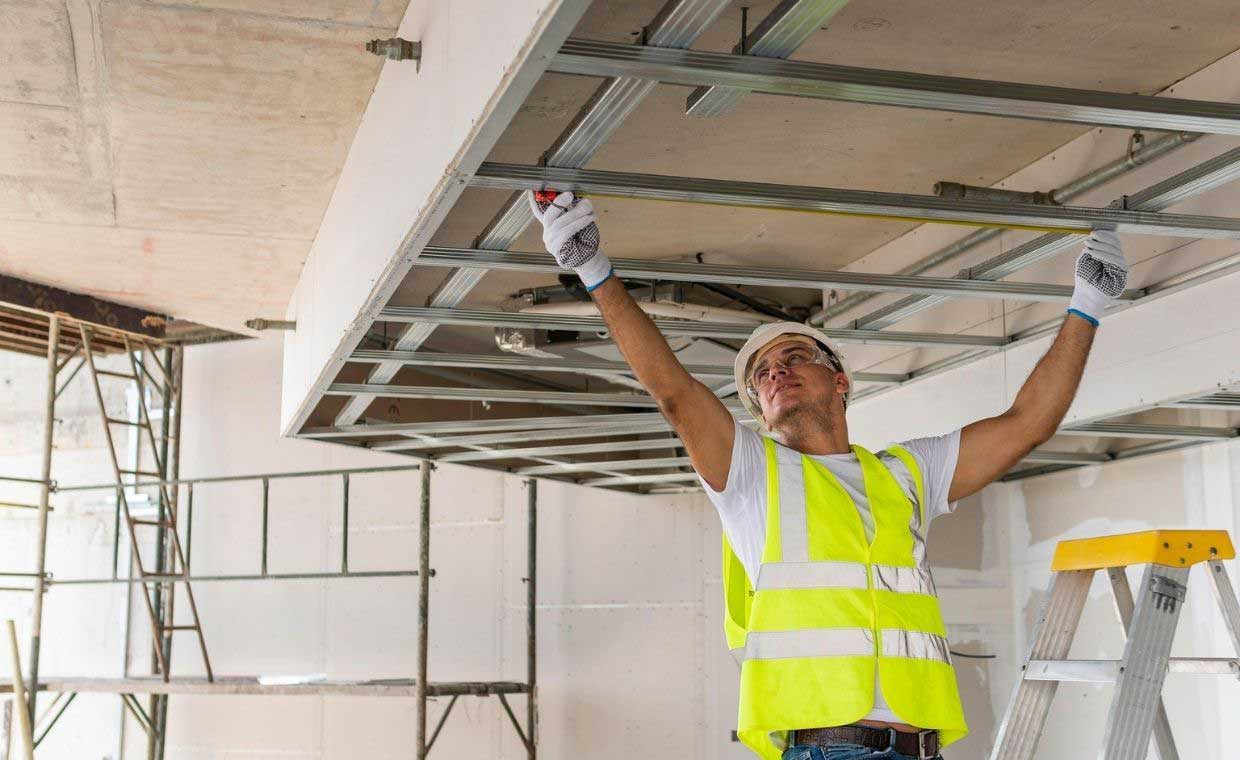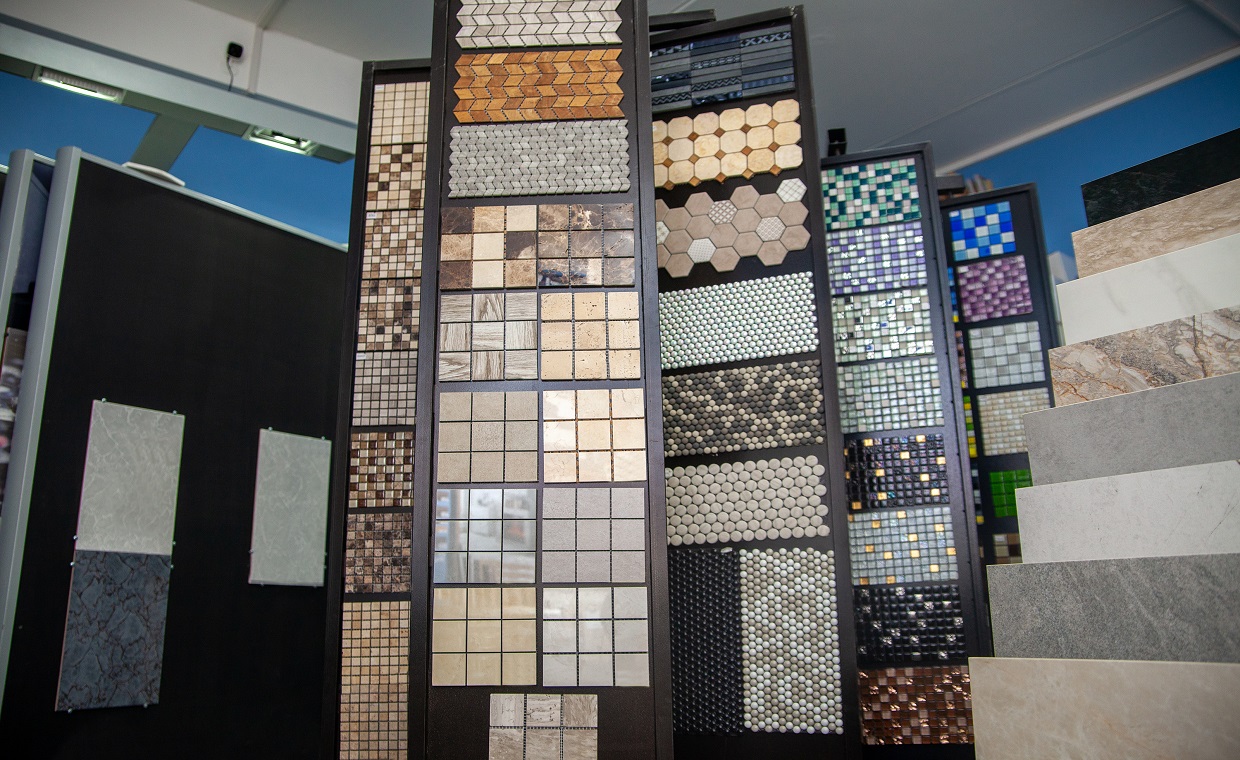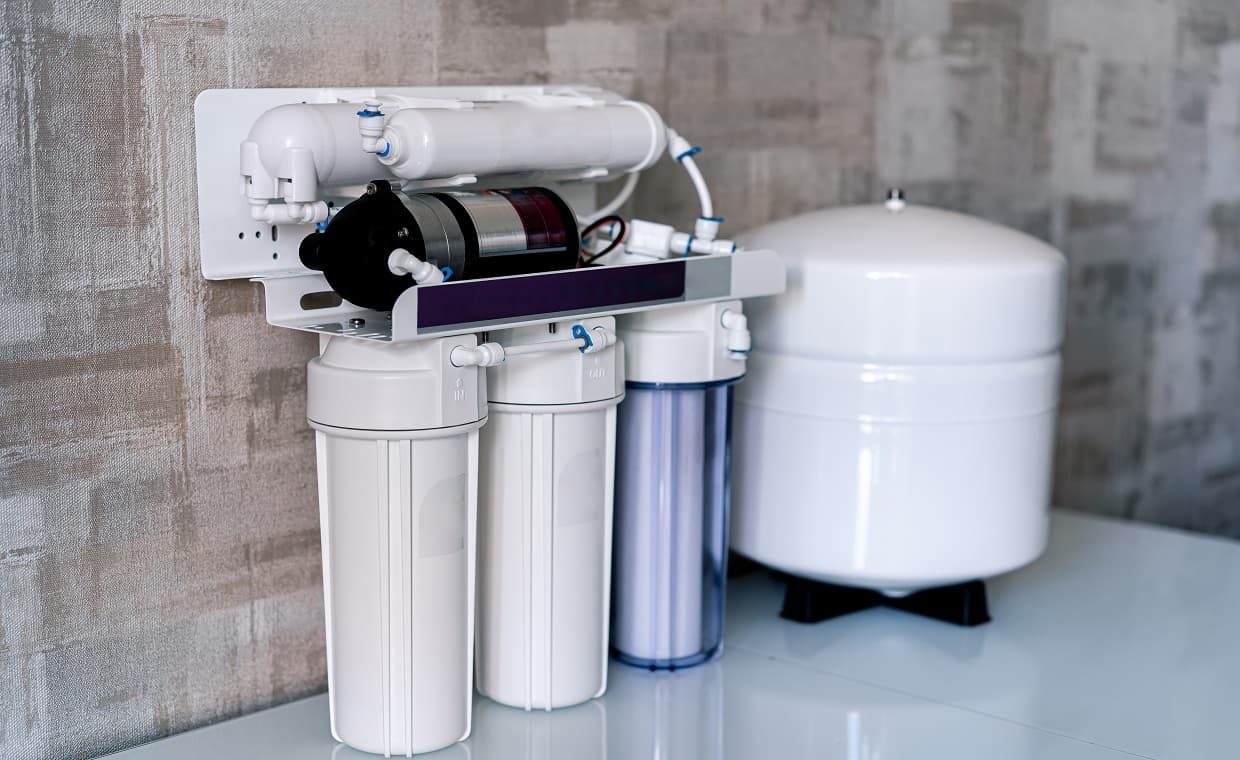
Table of Contents
Quick Summary
- Explains the importance of having clean, filtered water at every tap.
- Outlines contaminants found in typical water supplies like chlorine, lead, and sediment.
- Highlights how whole-house water filtration protects plumbing and appliances.
- Breaks down different filter technologies (carbon, KDF, UV, sediment).
- Compares whole-house vs. point-of-use filters for long-term value.
- Discusses cost savings from reduced energy bills and fewer repairs.
- Covers maintenance needs (filter changes, inspections, cartridge replacement).
- Emphasizes eco-friendly benefits, such as reduced bottled water waste.
- Notes health improvements like softer skin and fewer irritants.
- Recommends consulting a licensed plumber for installation and upkeep.
Every household deserves clean water in their showers, kitchen sinks, and for washing clothes. If your water smells, tastes odd, or leaves residue behind, your home might be missing a key upgrade: whole-house water filtration.
If you are looking to invest in whole house water filters in Sparta, NJ, read on as we discuss the convenience they offer.
Why Every Tap Should Deliver Clean Water
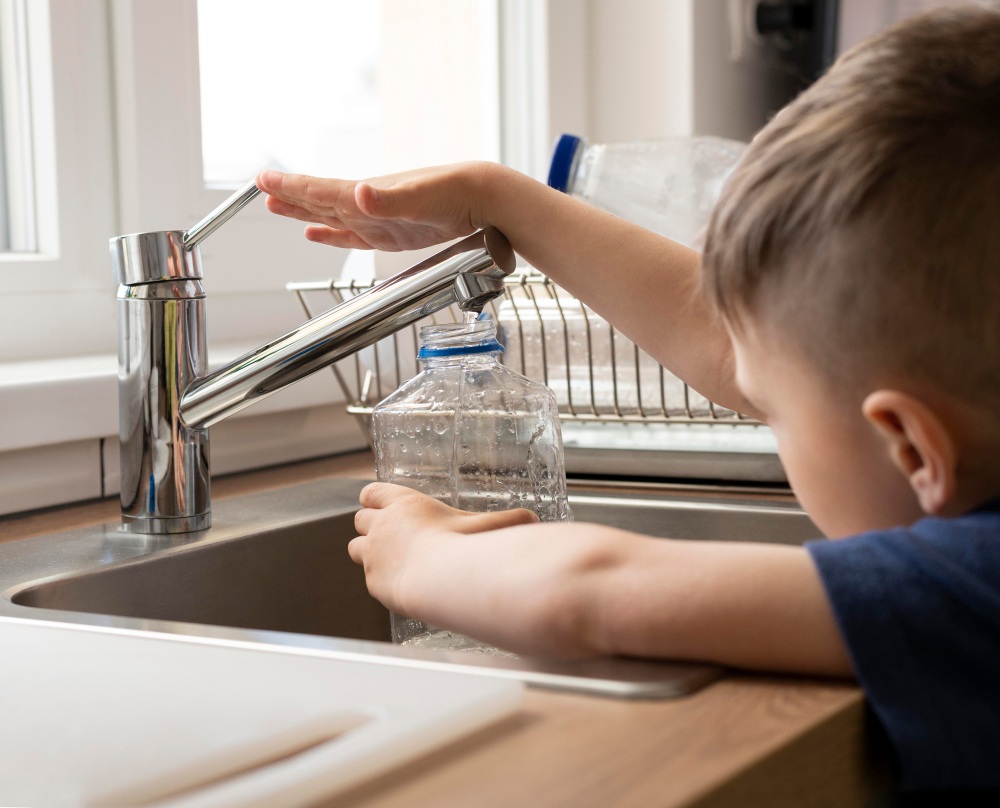
A whole-house water filtration system treats every drop of water that enters your home. That means the water you bathe in, wash clothes with, and clean your dishes with is all clean and filtered. In other words, the convenience is built in with whole-house water filters.
This can improve everything from skin sensitivity to the taste of coffee brewed at home. If you’ve ever noticed buildup in your tub or white residue on your dishes, this is one of the first solutions to consider.
What’s Lurking in Your Water Supply?
Many water sources in the U.S. contain traces of chlorine, lead, sediment, and hard minerals, with hard minerals being the most common.
These contaminants are hard to detect, but the damage they cause is real and they do so silently. According to the Environmental Working Group, over 200 million Americans may have PFAS-contaminated drinking water. A whole-house filter acts as your home’s defense.
Real Protection for Plumbing and Appliances
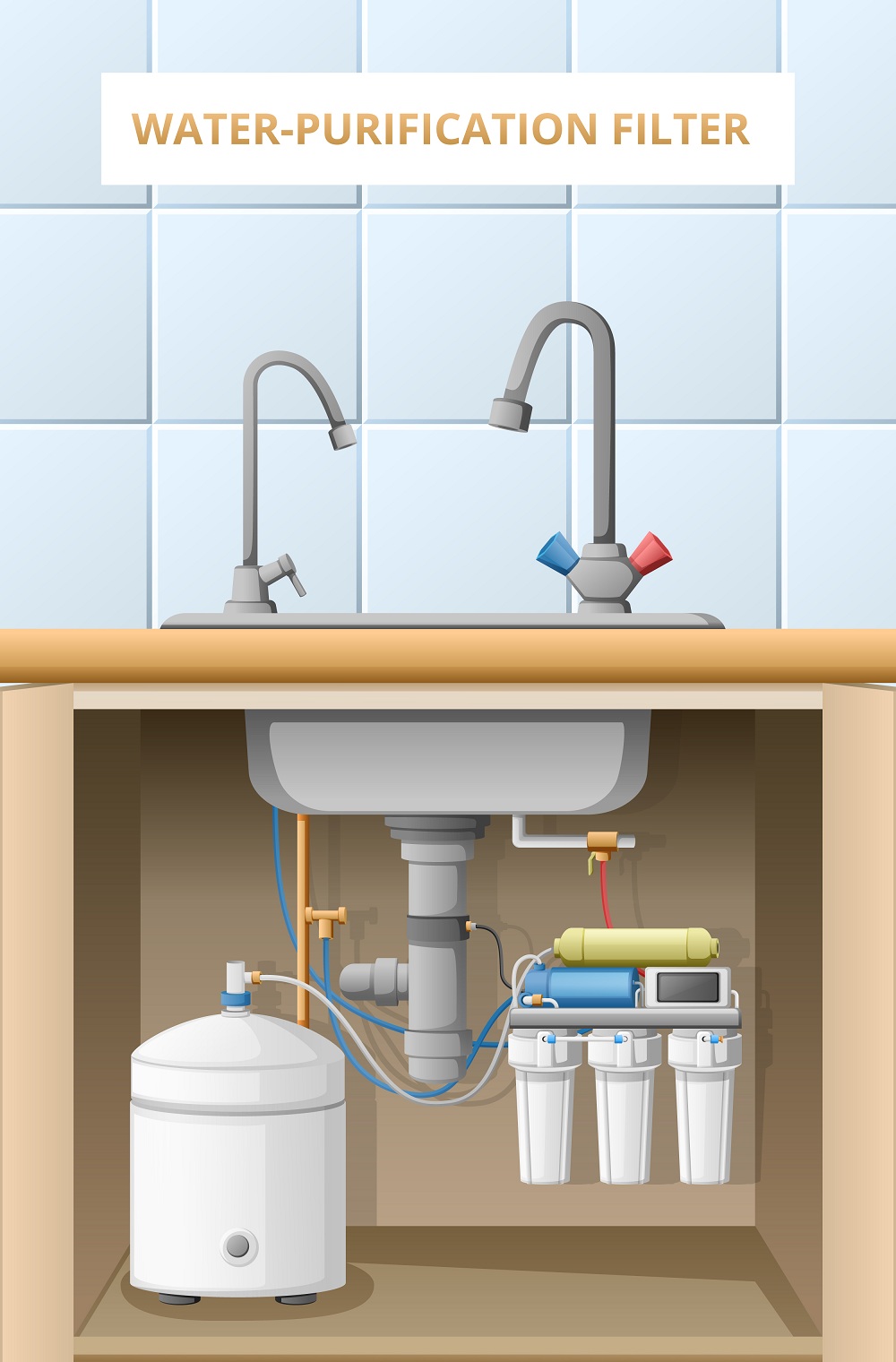
The most important thing to remember about using filtered water is that it shields your home’s systems. Without filtration, sediment and scale build up in pipes, reducing water flow and pressure over time. Dishwashers, washing machines, and water heaters wear out faster and run less efficiently.
When you remove the bad stuff early-right at the main water line-you avoid expensive replacements later. Clean water equals a longer lifespan for your entire plumbing system.
Understanding Filter Technology
There’s no one-size-fits-all filter. Each technology solves a specific problem:
- Activated Carbon: Removes chlorine, VOCs, and organic compounds
- KDF Media: Reduces heavy metals like lead and mercury
- UV Filtration: Kills bacteria and viruses
- Sediment Filters: Trap dirt, rust, and silt before they reach your fixtures
Not sure what filter to choose? Start by having your local quality assessed. “Start with a water test,” says a certified plumbing professional. “It helps you match the right filtration media to your home’s needs.”
Comparing Whole-House vs. Point-of-Use Filters
Wondering if a pitcher filter is enough? It depends on your goals. Meanwhile, Point-of-Use (POU) filters are cheaper but only treat water at a single source.
Whole-House Systems:
- Treat all incoming water
- Offer long-term savings on plumbing and appliance repairs
- Deliver consistent water quality for bathing, cooking, and cleaning
A whole-house water filter system is ideal for families or homeowners who want full-home protection and peace of mind.
The Cost of Doing Nothing
Homeowners often underestimate just how much using water filters help in saving money monthly. Hard water forces appliances to work harder, consuming more energy. Sediment, meanwhile, shortens the life of heaters and clogs faucets, leading to costly service calls. Over time, homeowners without filtration spend more on replacements and plumbing issues.
Paying for filtered water now can prevent thousands in repairs later. Truly, whole-house water filters are worthwhile investments in your home’s infrastructure.
Maintenance: Easier Than You Think
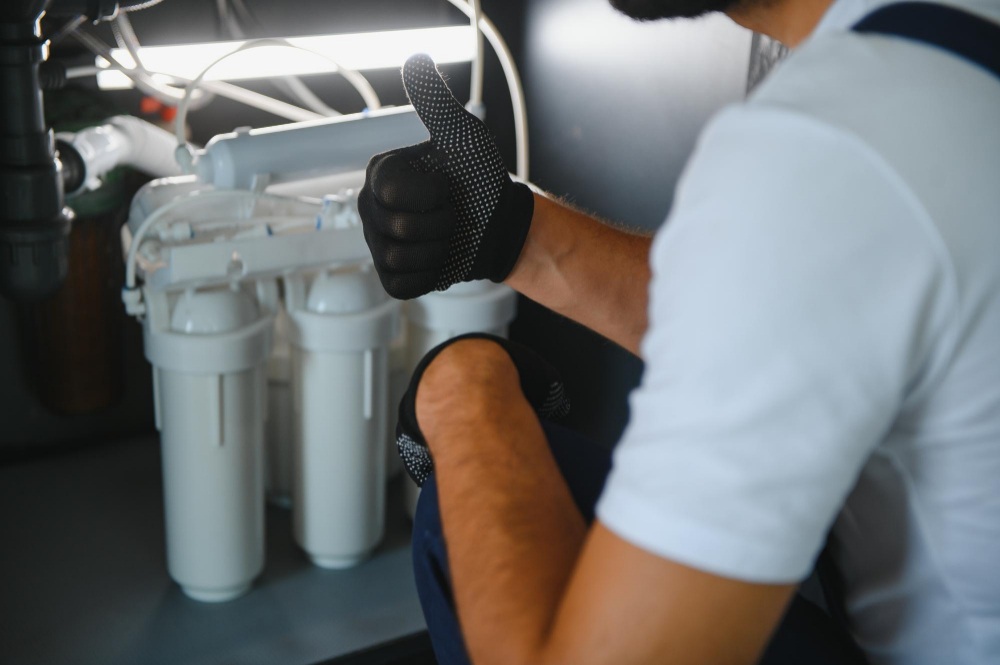
Some homeowners worry about keeping a system running. But whole-house filters are low-maintenance.
Homeowners can expect:
- Change pre-filters every 3 to 6 months depending on water quality
- Schedule annual system inspections
- Replace main cartridges every 12 to 18 months
A professional plumber can walk you through the timeline and even set up a plan for whole house water filter maintenance you should adhere to annually.
The Eco-Friendly Choice
Homeowners who want to reduce their total waste produced while improving efficiency of water-using appliances, investing in a whole-house filtration system should be a no-brainer. Aside from reducing plastic use from bottled water and improving appliance efficiency, you’ll also use less soap and detergent since filtered water lathers more effectively. That’s less money spent on cleaning products and fewer chemicals down the drain.
Wellness at Every Turn
Chlorine vapor in hot water can be inhaled. Lead, meanwhile, can seep into the skin through open pores. Whole-house filters reduce these risks, contributing to a healthier environment inside your home.
Over time, many families report softer skin, fewer breakouts, and even shinier hair, all from filtered water.
Installing a whole-house filtration system is one of the smartest ways to protect your health, home, and future. If you want to purchase one but unsure how to proceed, a licensed plumber can help you pick the right system.
Work with a licensed plumber who specializes in water filtration. They’ll help you pick the right system, install it correctly, and keep it running smoothly.
Also Read: Residential Plumbing System: All You Need to Know!
FAQs: Whole House Water Filtration Systems
Q1: What is a whole house water filtration system?
A whole-house water filtration system treats all water entering your home, ensuring every tap delivers clean, safe water.
Q2: How is a whole-house system different from point-of-use filters?
Point-of-use filters treat water at one location, like a faucet, while whole-house systems filter all incoming water for the entire home.
Q3: How often should I maintain a whole-house water filtration system?
Pre-filters should be changed every 3-6 months, with annual inspections and cartridge replacements every 12-18 months.
Q4: What contaminants do whole-house water filters remove?
They reduce chlorine, lead, sediment, bacteria, viruses, and hard minerals depending on the filtration media used.
Q5: Are whole-house water filtration systems eco-friendly?
Yes, they reduce bottled water use, improve appliance efficiency, and cut down on soap and detergent use.























